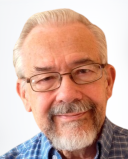Therapy
It’s Not Just the Psychedelics, Therapy Matters
The potential benefits of psychedelics.
Posted December 21, 2022 Reviewed by Lybi Ma
Last month, a majority of Coloradans voted to pass Proposition 122, a measure to legalize the use of the psychedelic drugs psilocybin and psilocin. This makes Colorado the second state, after Oregon, to make psychedelic use legal for therapeutic needs.
Because I have spent the last six decades of my life trying to increase the acceptance of the potential of psychedelic drugs, I know that, when competently used, psychedelics support the healing of many forms of human suffering, often considered “mental illnesses.” Copious research points to the great promise of these therapies, and we’re seeing an unprecedented urgency to bring them to the masses.
It’s encouraging that Proposition 122 calls for the use of psychedelics under the supervision of licensed professionals and greater education. But follow-through on these provisions and others like them is everything. Indeed, the way the delivery of these therapies is far more important than the molecules that so many companies are now rushing to develop.
In 1977, I was the last person in the U.S. involved in a clinical trial using psychedelics to accelerate psychotherapy—a research trajectory the federal government shut down as part of the “war on drugs.” Thankfully, in 1999, Johns Hopkins University gave psychologist Roland Griffiths and me a green light to resume investigations into the medical promise of psilocybin, the psychedelic compound found in many mushroom species. Today, there are 128 clinical trials in the U.S. evaluating the healing powers of psilocybin alone.
Alongside the boost in clinical research, there has been a proliferation of books, articles, and documentaries raising awareness and strongly presenting (in most cases responsibly) the potential benefits of psychedelics. Not surprisingly, private investors are already placing bets on the future of psychedelics, hoping to build a new market in many cities and states.
I am concerned, however, that too many initiatives are focused on legalizing psychedelics without considering how they may best be delivered to ensure safety and maximize efficacy.
Psychedelics are most useful and safest when administered in a setting intentionally created to imbue trust with therapists who have the training and expertise to prepare and support patients during the period of drug action. Therapists must establish “interpersonal grounding,” a trusting relationship that enables patients to feel safe, open, and courageous as the opportunities to explore the human mind open.
As I explain in Sacred Knowledge: Psychedelics and Religious Experiences, one’s experience with a psychedelic is a bit like downhill skiing. Almost anyone can go to the top of a mountain, latch on a pair of skis and make their way downhill alone. It might even be exhilarating. However, if the slopes are not well maintained, we are less likely to trust the environment enough to “let go” and allow our skills to take us into the experience. The downhill journey could prove to be dangerous if one hasn’t learned how to balance, control speed, and safely stop; the skier might struggle to stay on their feet and miss the more fulfilling trails hidden from the view of novices.
It is possible that, without guidance, someone might have a good psychedelic experience, but that’s risky. They may see great colors or recall long-submerged feelings and memories, but without a steady, knowledgeable guide, they may not tap into the profoundly healing and revelatory processes that psychedelics can provide. And if they encounter disturbing occurrences along the way (as many do), they might struggle to navigate them.
No one can be more pleased than I am about the growing acceptance of psychedelics to help those who may benefit from them. But we must move carefully and deliberately as we expand their availability. That means ensuring that they are taken under the supervision of well-trained therapists and in safe and well-monitored settings. It also means providing people with the information they need to obtain the safest and most successful outcomes if they choose to take a psychedelic.


